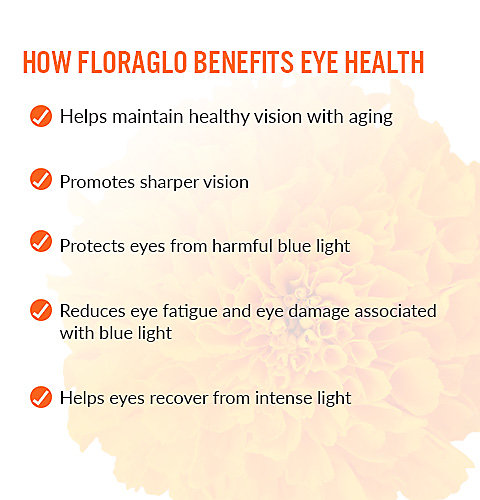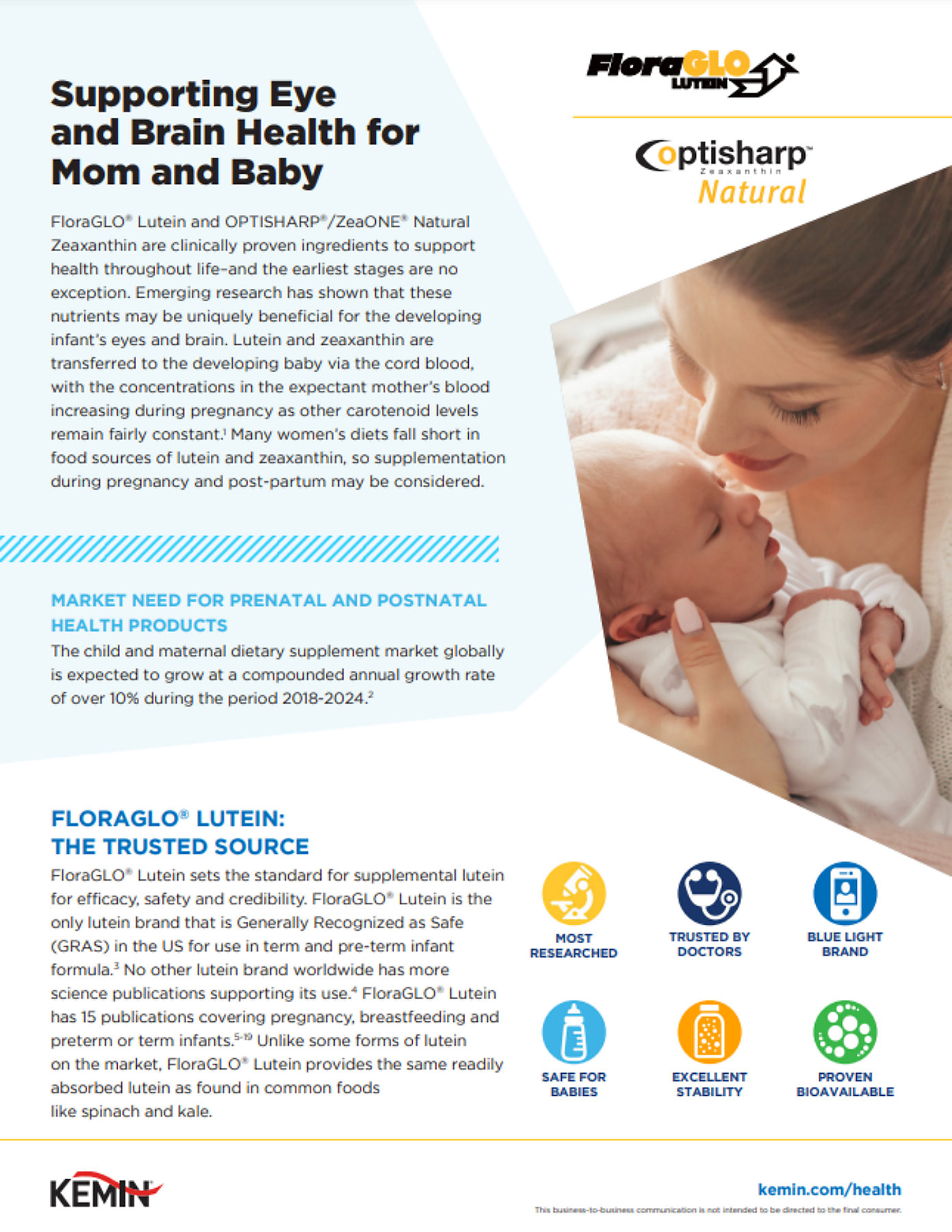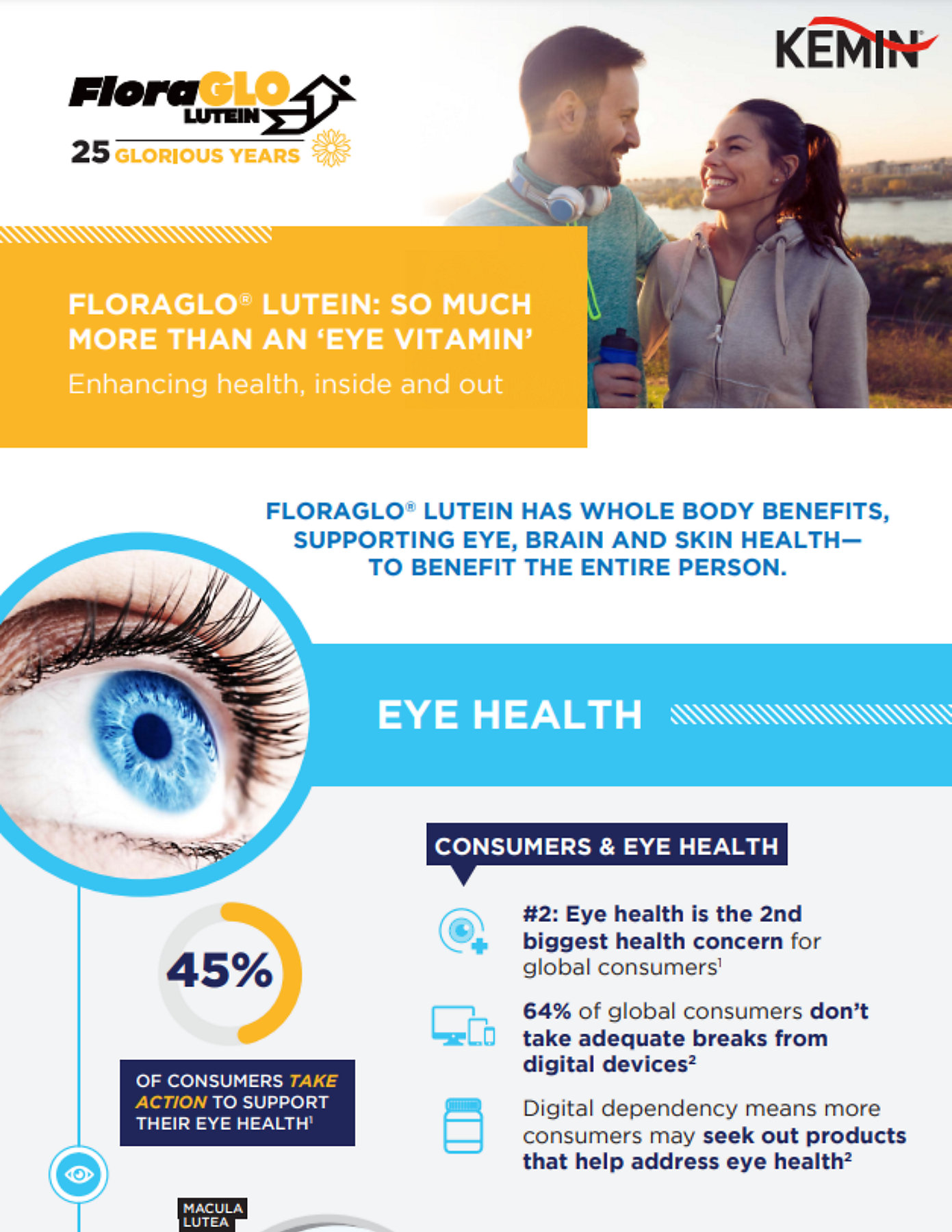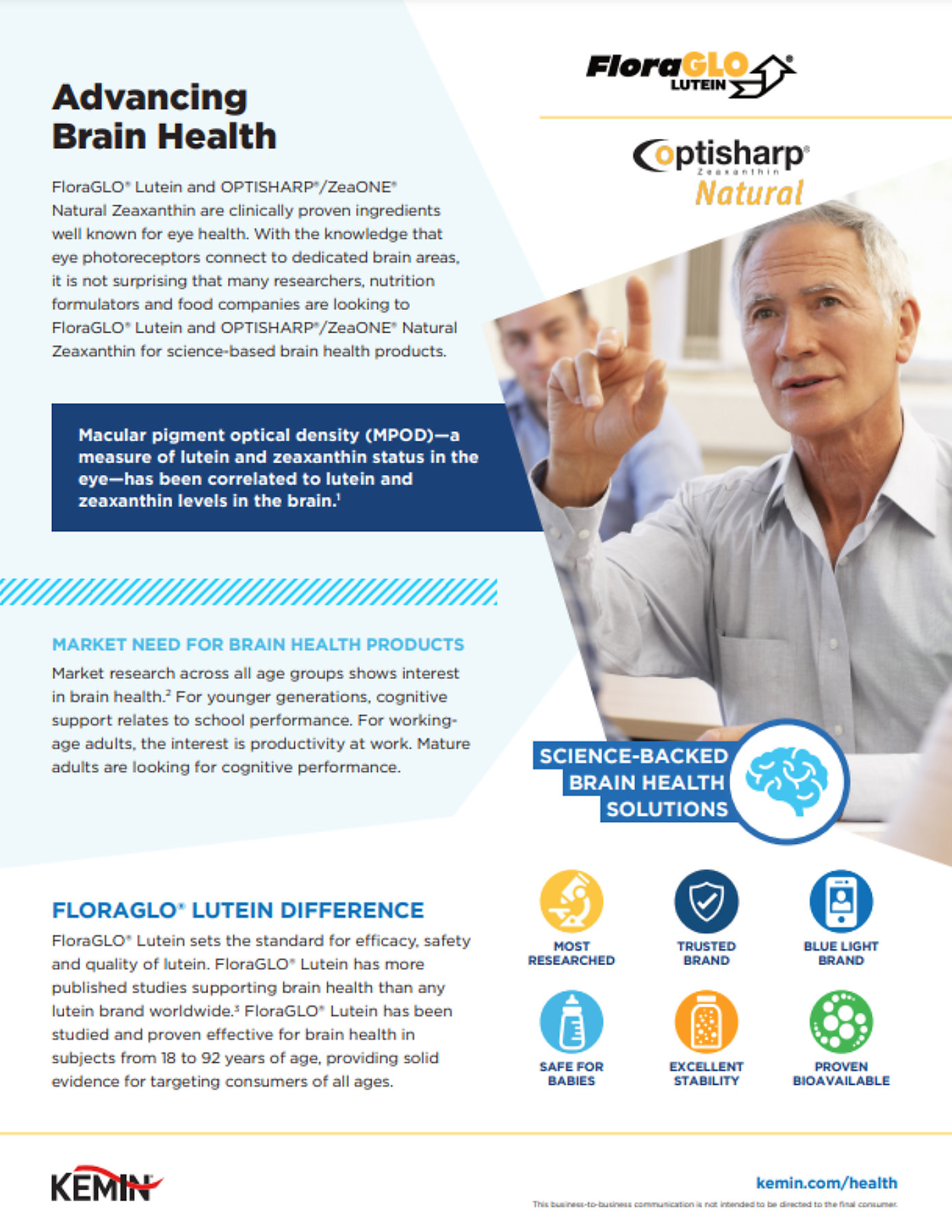Supports Cognitive Function:
- Works naturally to enhance cognitive function.1
- Supports cognitive flexibility.3
- Enhances complex attention.3
- Improves visual memory.4,5
You are viewing Asia Pacific
FloraGLO® Lutein for Brain Health

FloraGLO® Lutein, sourced naturally and renowned for its quality, safety, and effectiveness, plays a pivotal role in supporting cognitive function1 and overall brain health.

Available in optimized forms such as powder, oil and microencapsulated formats, ForaGLO® Lutein integrates seamlessly into supplements and functional foods aimed at supporting brain health.
Explore the extensive benefits of FloraGLO® Lutein for cognitive health and discover how it can elevate formulations for brain health.
If you're interested in formulating with FloraGLO Lutein, fill out the form below and a Kemin representative will be in touch shortly.
Recommended use: a dose of = 10 mg FloraGLO® Lutein and 2 mg OPTISHARP™ Natural Zeaxanthin is considered efficacious.
These statements have not been evaluated by the US Food and Drug Administration. This product is not intended to diagnose, treat, cure or prevent any disease.
OPTISHARP™ Natural is a Registered Trademark of DSM Nutritional Products Ltd.
OPTISHARP™ Natural is made with ZeaOne(R) from KEMIN. ZeaOne is a [registered] trademark of KEMIN Industries, Inc.
The information on this webpage is a business-to-business information and not intended for the final consumer. Certain statements may not be applicable in all geographical regions. Product labeling and associated claims differs based upon government requirements and country or region specific information should also be considered when labeling or advertising to final consumers.
This web page and its associated brochures and other documents do not constitute or provide scientific or medical advice, diagnosis, or treatment and are distributed without warranty of any kind, either expressly or implied. This web page, its title or contents and associated brochures and other documents do not in any way make recommendations for health or marketing claims by the reader. Country and region specific regulations should be considered in this regard. Each claim or statement about the effectiveness of Kemin products and/or each claim or statement comparing the effectiveness of Kemin products to the effectiveness of other products is expressly limited to the United States, unless otherwise disclosed on the Kemin websites.
Refences:
© Kemin Industries, Inc. and its group of companies All rights reserved. ® ™ Trademarks of Kemin Industries, Inc., USA
Certain statements may not be applicable in all geographical regions. Product labeling and associated claims may differ based upon government requirements.




